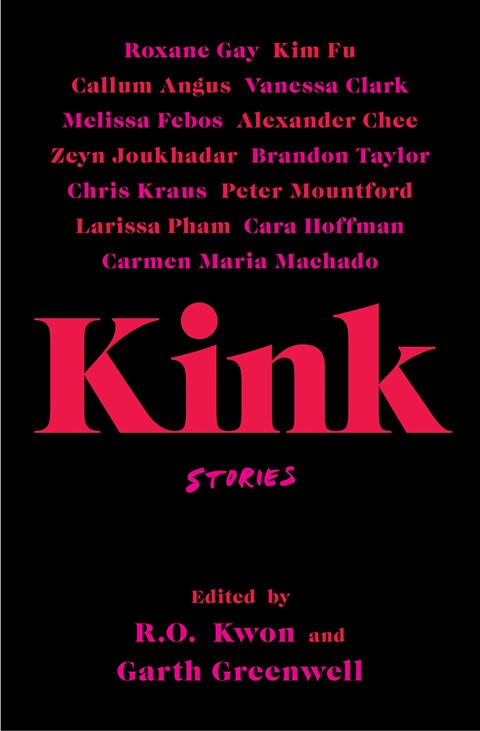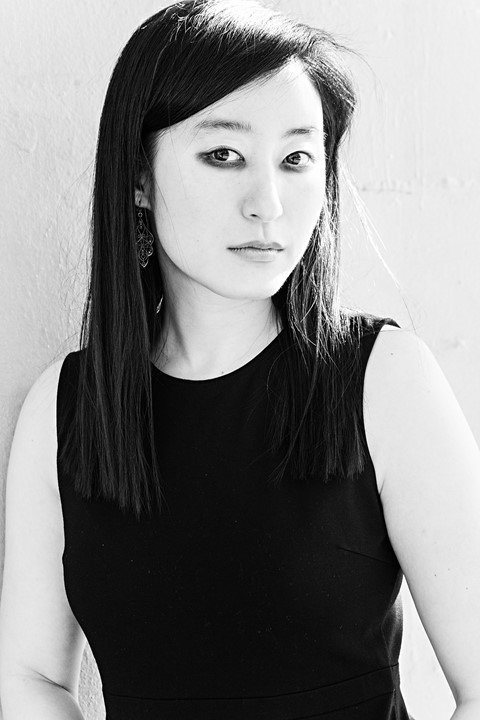RO Kwon has edited a talked-out book of short stories exploring love, desire and BDSM – here, she discusses the languages of kink, how they chose their stories, and how, in the literary tradition, so many authors fail to write convincingly about sex
If kink is a language of its own, then Kink, edited by RO Kwon and Garth Greenwell, might be a dictionary. The new literary anthology accumulates stories of kink from many bright young literary stars – Brandon Taylor, Alexander Chee, Carmen Maria Machado among them – as well as the anthology’s editors themselves. Kink thrusts tales of uncommon appetites out of their dark rooms and into the limelight, raising them for us to savour like an amuse-bouche.
The book’s foreword sets its intention as a way to “rescript the larger cultural narratives that surround us.” After all sex, with its infinities, has its own language and vocabulary; kink creates another form of dialogue, containing our wants, in ways at once base yet profound, simple yet psychologically consequential. Denoting “nontraditional sexual preference”, kink can say the quiet part of our sexual dynamics out loud (at times, screaming it so loudly the neighbours can hear – maybe they’re into that). “Who knows why we take pleasure in such things … It’s best not to look into it too closely,” writes Greenwell in his own entry to the anthology.
Available now, and already a national bestseller, the anthology was selected as one of the most-anticipated books of 2021 by O, The Advocate, Literary Hub, Refinery 29, Cosmopolitan, even The Oprah Magazine. We spoke to Kink editor, RO Kwon, author of The Incendiaries, about the languages of kink, how they chose their stories, and how, in the literary tradition, so many authors fail to write convincingly about sex.
AnOther Magazine: How did you come to edit Kink?
RO Kwon: I had written a story which was published in Playboy. I remember I was really anxious, because it was the most sexually explicit thing I’d ever written, but by and large, the responses were so lovely. It was people saying “thank you for writing this,” “I feel so much less alone after having read this,” and I just thought about that. I was at a residency in New Hampshire in the far north-east and while I was at that residency I read a version of Garth’s story. It occurred to me that these stories could all live together in one book.
AM: What questions did it throw up for you when you were compiling the anthology? You obviously had your own experience when you were writing this story for Playboy, but then receiving these submissions or collaborating with these authors who think about kink in a broad gamut, showing there are as many kinds of kink as there are people, how did it change your view of the world of kink?
ROK: Oh, that’s such a beautiful question. In our emails soliciting work from writers, we very intentionally said something like, “Would you be interested in writing a story that is meaningfully centred on kink as you would define it?” What ended up happening was sometimes we would receive stories in which Garth and I were really not sure where the kink was in the story! But a couple said, no, I do feel it is strongly centred, here’s my thinking. So we had to respect and hold space for how people might want to engage with kink.
AM: I think that’s what’s nice about the stories: they don’t play out in a predictable way. They play out all of the molecular emotions, at each moment of the kinky encounter. I was wondering how you wrote yours, and whether you wanted to go on a journey with your characters – essentially, whether the characters came first or the kink?
ROK: For me what comes first is a situation. This is a question that I find to be fascinating: what happens when two people who love each other very much, want totally different things for their lives? This happens when there’s one half of the couple that’s totally into kink and there’s one other half who’s just like ... “What is this? What’s happening?” I was interested in those dynamics.
AM: The styles of the writers and the genres are very different, from Carmen Maria Machado’s entry, to your own, to Brandon Taylor’s. But they share that trait of being contemporary literary fiction. They’re different styles, but they blend well together. I was wondering if that was something you were conscious of?
ROK: Just in terms of demographic representation it was really important to me, just generally, that if I’m involved in spearheading or organising something literary, it’s really important that there be at least as many people of colour as white people, at least as many people of marginalised genders as men, at least as many queer people as straight people. Increasingly it’s becoming very central to what I want to do in the world. And it was also important to both of us that there be a lot of stylistic diversity, that there be a multiplicity of voices, and beliefs about what fiction is. But we didn’t give anyone any guidelines, other than that one, “would you be interested in writing something that is meaningfully centred on kink”. But other than that we didn’t give any thoughts or prompts or anything. We were so glad and so excited by how wildly different some of the stories were.
AM: How have you found the reaction of readers and the literary community? Have you found that it’s advanced the conversation around kink in the way that you wanted it to? Has it surprised you in any way?
ROK: The first thing I should say is Garth and I were, and continue to be, really delighted and thankful that so many people have been responding to the book. You know it’s an anthology of short fiction, like we definitely didn’t expect any bestseller-dom from an anthology of short fiction – that has come as a wild surprise! (Laughs). I really loved hearing from so many people, especially people who do feel seen or feel less alone because of this book. It’s always amazing when a book can do that.

AM: Kink speaks to the new vanguard of literary fiction, of people like you, and Garth, and Brandon Taylor, who could be described as modernist. I was wondering what your opinion was on this new generation of writers, and what you think their agenda is?
ROK: I have such trouble generalising, [but] something that I do see increasingly among the writers who I’ve been reading, is a lot more openness than there used to be. There’s an idea that anything can, and should be, literature. Anything is fit for material to be literature. That involves sex. That involves cake. That involves literally anything to do with our bodies. Anything at all that is in our lives could be subject to literature. It both seems like a really obvious notion to me, like I’ve always believed that, and it seems relatively controversial to a lot of people, at least in the US, for sure.
AM: Is there a certain pressure with the stories, because they’re about non-traditional sex, to depict what was being shown in a positive way? Were you ever afraid that you were going to add to a certain stigma? Because I think people have those views about kink, so there might be pressure to depict it in a healthy and positive way. But sex is never linear – it’s complicated!
ROK: On the one hand, it’s impossible not to feel those pressures. As a queer Asian woman, I still haven’t read very much writing by queer Korean women, and so, I cannot help but be aware that there are not that many stories out there about people like me. So there is that additional weight. That said, as a woman writing fiction, it’s really important for me that when I write I completely forget that weight. I write as though none of that exists. I think it would feel like a really impoverished position to write from, were I to write each day as being aware of that weight, of not having much representation, of knowing that. It’s really important that I write from a place of abundance. I have to write with people that are like me as my first audience. I think a lot about how Toni Morrison said she was writing for Black women. Her first audience was Black women and the rest of us get to listen in and that’s incredible. But she was not writing with the rest of us in mind at the forefront of her mind. I think about that a lot, how important it is for me to centre people like me first.
AM: Often in the stories, there are moments where the characters close down because they’re having all the weight of expectation to behave in a certain way, and they reach the edge of their vocabulary. There are moments in your and Brandon’s stories, and your own novels, where you don’t want to have to justify this, and you convey that sense of fatigue really well.
ROK: Yeah. I love that way of putting it. The fatigue of justifying yourself. Exactly. I think in my fiction it’s really important to me that I don’t explain anything for eyes that are not Korean. For me personally, and I know not every Asian writer feels this way, for me if I were to explain in that moment, I would be signalling to a Korean reader that they are not being centred in that sentence. I feel strongly like … fuck that. To be asked to talk over the heads of Korean people to a larger audience when I am a Korean writer seems inauthentic.
AM: It seems inauthentic to the character and the writer.
ROK: Exactly!
Kink by RO Kwon and Garth Greenwell is published by Simon & Schuster.
